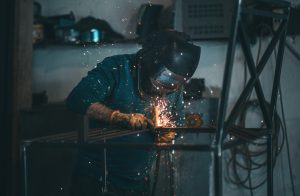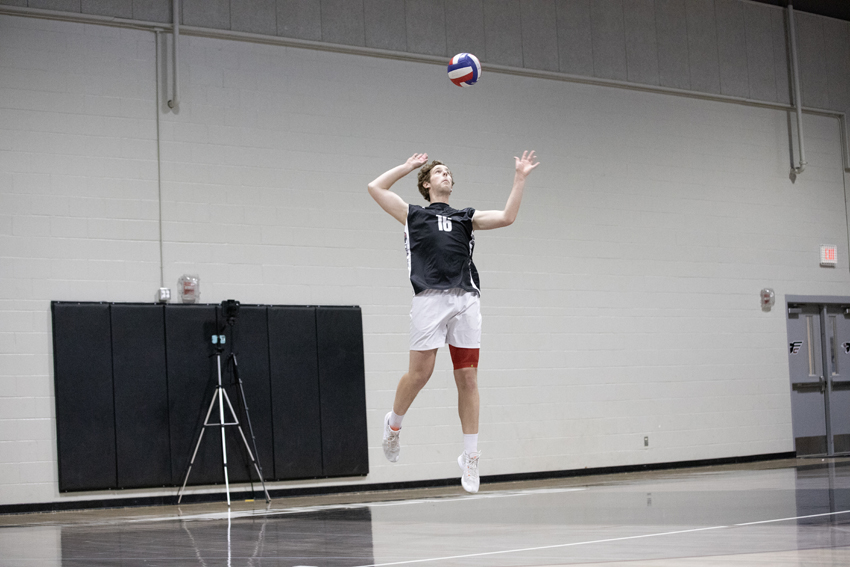This is a blog for students and adults who want to ponder the benefits of exercise, fitness and strength training and their implications for life beyond the momentary endorphin rush or the pursuit of some physical aesthetic ideal. The views and opinions expressed in this blog are founded on several years of personal experience, observation, trial and error (lots of the latter) and study. This is the fifth of a biweekly series of blogs written by Mick Fuller.
No one can make you train if you don’t want to. That is both the best and the worst thing about the process of getting stronger. I say “best” because I don’t have to depend on anyone else to decide that I am going to train. It is also “worst” because I MUST rely on myself and my own self discipline and determination to stay motivated when training is hard. It is possible to have other people, such as friends, coaches or personal trainers help me with some of the motivation, but only I can force myself to do it.

In a previous post I talked about motivation for training from a “big picture” perspective–the reasons people decide to train and the effects of setting specific fitness related goals. We might call those the macro-motivational aspects of fitness.
Just as macronutrients–protein, carbohydrate and fat (what we can call the “big three”)–sustain life on a large scale, the big goals a person sets and the self image he wants to make reality keep him oriented toward training. They are the fuel for progress.
On a day-to-day basis we must do the hard work of managing the micro-motivation factors which affect our desire and ability to train effectively. Our physiological needs are based on complex chemical interactions than cannot be maintained by the big three alone; we need a long list of micronutrients–vitamins and minerals–for the various systems to function optimally.
In the same way, small decisions and choices in response to external or internal factors are the crucial drivers for each day’s dedication to a program of intense training. These micro-motivations are small inputs of thought and attitude, like essential vitamins, that maintain the psychological system which keeps you on track to achieve your goals
Here is how it might work. If I am feeling a little under the weather with a cold virus, I may try to justify cutting short my workout or not doing it at all. The body’s reaction to the virus affects my energy level, my stamina and possibly my force production capacity.
The more significant effect may be on an ambiguous, non-quantifiable sense of how I feel. The real impediment to doing the work under the barIt is the feeling of sickness, the subjective perception of my physical state. In this circumstance, I am dealing with a micro-motivation factor.
If I choose to disregard the extra bit of short term physical discomfort resulting from the cold virus and train hard anyway, I can gain a long term benefit. It is unlikely that I will do any harm to myself in that situation, as long as I get sufficient rest and recovery time. Knowing that exercise can stimulate the immune system provides a dose of logical micro-motivation to counteract the urge to not be productive.
Lets imagine some situations that require application of this micro-motivation approach. The table below provides examples of challenges to training and concepts or statements that might be applied to counteract them.
| The issue that produces the urge to not train | The micro-motivation to overcome it |
| Feeling tired from a long day at work or school | Endorphins produced in training will make you feel better |
| An opportunity for short term pleasure/diversion with friends | Missing a workout for fun today makes it more likely you will do it again in the future |
| Feeling stress from a work/family/life crisis | Training provides a physical release of tension and an emotional/mental diversion |
| Frustration at not seeming to make progress | Trust that progress will come; the process takes time and sustained effort. Lack of effort correlates directly with lack of progress |
| Fear of the weight getting too heavy | That weight will always be “too heavy” until you lift it. Courage overcomes fear |
One of the interesting things I’ve experienced in training, which seems somewhat counterintuitive is that “feeling bad” often correlates inversely with performance. It is not uncommon for me to start a workout thinking that I will take it easy because my knees hurt or I have low energy. Then, when I get warmed up, I decide to do the lift or the weight I know I should and the result is better than I expected.
A week ago, my knees hurt all day but I got under the bar for squats anyway. I went through my warm up and decided that I would just keep titrating up to a max effort lift. I finished with a weight that I haven’t squatted to full depth in 10 years. I then did my work sets (3 sets of 5) at a weight equivalent to my best work weight in 3 years.

My experience is far from an exemplary case and certainly not unique, both in strength training and in sports more generally. Just look at Aaron Rodgers season opening performance against the Chicago Bears this season. He left the game with a knee injury in the first half but returned in the 3rd quarter with his team down by 20 points and led the Packers to victory, despite not being able to move or throw normally because of the knee pain.
I have heard and read numerous stories about people in all manner of difficult circumstances–family crisis, cancer treatment, catastrophic injury–who successfully overcome those obstacles to train and make progress day by day. This is evidence that mindset has a lot to do with our ability to perform, and can even overcome our apparent physical limitations or emotional states.
That is the key to understanding micro-motivations: knowing what you should do, fortifying your mindset and desire to train with complimentary ideas and knowledge and not letting temporary emotional states deter you from pursuing your goals.
Developing effective micro-motivations takes time, practice and effort, just like the process of training. When part of you is telling you to not train, you tap into the micro-motivation reservoir to keep the system going. When we learn to do that consistently, we are on the way to becoming functional humans.
To read the first blog of the series read: Functional Human blog, No. 1
To read the latest blog of the series read: Functional Human blog, No. 4: Words You Should know










![[Video] 100th CSPA Spring Journalism Conference](https://thefeather.com/wp-content/uploads/2024/04/20240308-cspa-crown-002.jpg)
![[Video] New York Day 4](https://thefeather.com/wp-content/uploads/2024/04/NY-trip-day-4-JC-.jpg)

![[Video] FCS College Fair](https://thefeather.com/wp-content/uploads/2023/10/20231003-collegefair-012_1.jpg)







Bryce Foshee • Oct 16, 2018 at 11:05 am
Very well written! I think that the skill of lifting when one does not feel like lifting is one of the most difficult parts of weight training. It’s also totally worth it, as the skill translates to many areas of life.
Annaleise Anderson • Oct 15, 2018 at 11:04 pm
Very inspirational, and encouraging!
Cohl Obwald • Oct 15, 2018 at 7:14 pm
Great job coach. That is going to be very helpful for me in the future.